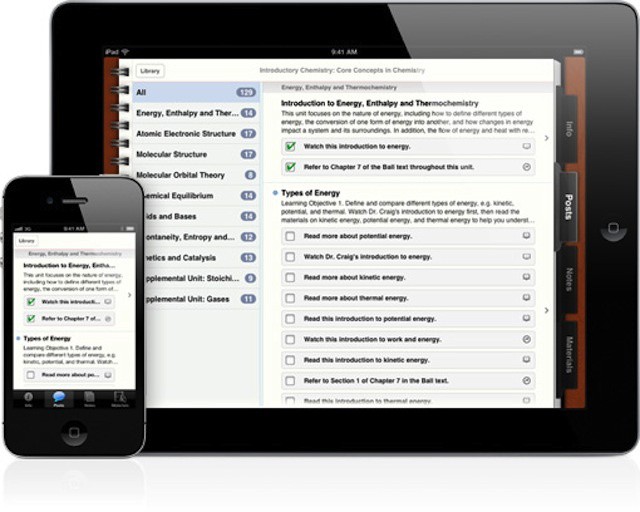Both the Atlantic and NY Times ran stories this week focusing on Coursera, an initiative involving several high-profile universities that are putting a range of classes online for anyone who wants to take them. The initiative is part of trend in higher education to make learning available to anyone who has the personal or professional interest in taking a college or university class regardless of financial or geographical challenges.
While Coursera is getting a lot of media attention and is racking up hundreds of thousands of students around the globe, the idea of free college learning is hardly new. Apple introduced the concept of watching or listening to college lectures when it first rolled out iTunes U in 2007. More recently, Apple revamped iTunes U to offer a much more immersive experience that includes assigned readings, activities and projects, and even note-taking in addition to recorded lectures.
Going back even further, both Coursera and iTunes U are modern and expanded versions of the concept of auditing a higher education class or lecture series. You’re welcome to attend, learn, and expand your personal interest or professional skills, but you don’t receive college credit for the experience.
According to Walter Isaacson’s biography of Steve Jobs, Apple’s late CEO spent time auditing classes that interested him after officially dropping out of Reed College – an experience that may have sparked the creation of iTunes U in the first place.
The models of both Coursera and iTunes U focus on continuing education and professional development more than anything else. Neither organization grants credit for the free online courses that they offer, though the University of Washington has said it will offer credit for its classes on Coursera.
It’s hard to see how Apple could offer credit through iTunes U given that the company isn’t a college or university in any real sense. On the other hand, it is conceivable that universities making content available through iTunes U could develop a way that online students taking those courses could be granted credit for them, most likely while charging administrative and other related costs and fees.
While schools are open to offering content this broadly, the Atlantic report notes that most faculty aren’t. It cites a study that showed 58% of higher education faculty are afraid of rather than inspired by options like Coursera and iTunes U. It does note, however, that faculty that have created and taught such courses are much more enthusiastic about the potential than those that haven’t – a fact that was very clear in a recent series of interviews conducted by the Chronicle of Higher Education with professors who had taught such programs.
Source: The Atlantic
Image: Apple



